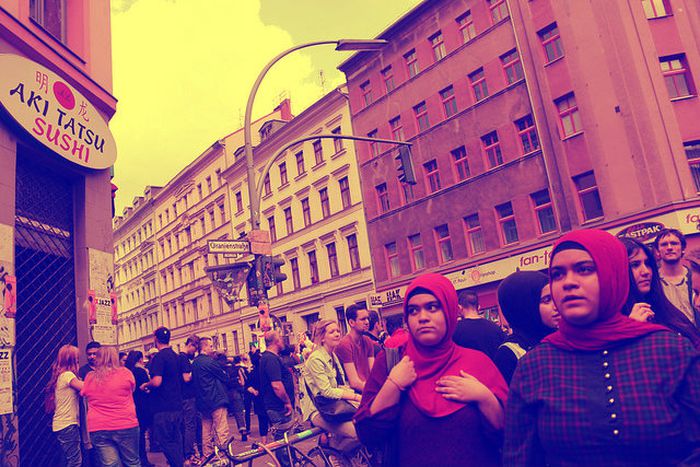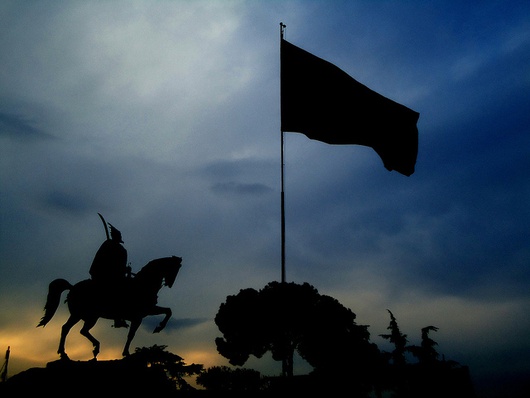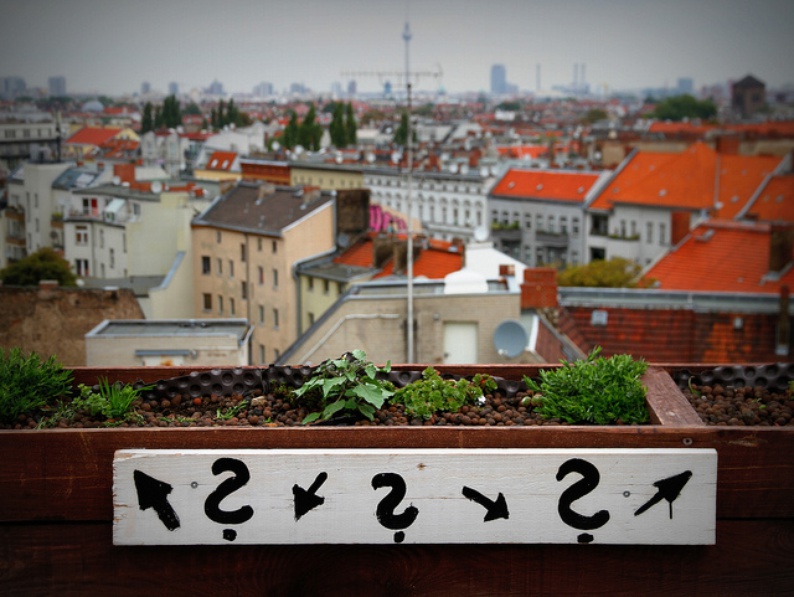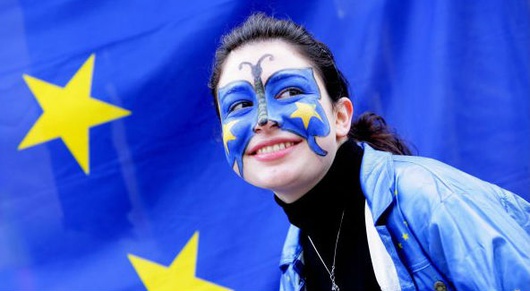
European elections 2014: How much diversity does Europe really want?
Published on
Translation by:
 Danny S.
Danny S.
Europe has voted. The lasting impression is one of considerable miscalculations in the debates about financial crisis, EU institutions and European identities. While the media speaks about "earthquakes" and other natural disasters, politicians seem to be clueless and the citizens fall back onto the democratic sidelines for another five years. What comes next?
The elections are over and Europe is in shock. All of Europe? No. The sound of revelries, volleys of gunfire and euphoric fantasies of political supremacy have been resounding from right-wing populist parties all over Europe. Above all from Marine Le Pen and her Front National, which, with 25% of the votes quite rightfully call themselves the "premier parti de France" (first political party of France, Ed.). Similarly alarming right-wing successes were also seen in Denmark, the UK, Hungary and Greece. Only a few countries appear to have been spared from the right-wing populist earthquake - luckily Germany is one of them.
Only skeptical of Europe, or worse?
The Christian Democratic Union and Social Demcoratic Party (SPD) are about even, while the Free Democratic Party (FDP) stands on shaky ground. Many Germans are still green-oriented and even the Alternative for Germany (AfD), which is skeptical about Europe, seems dangerously tame. Although the followers of Bernd Lucke tried to garner votes through skeptical rallying cries, the difference of their agenda is still enormous compared to parties such as the Front National, whose members hold nationalistic positions, are in favour of the return of the death penalty, want to re-criminalise abortion and to abolish homosexual marriages. But why did the German Federal Constitutional Court at the last second overturn the new 3% provision, thereby indirectly giving the extreme-right NDP a seat in the European Parliament? Luckily only 1% of voters perceived their nationalistic program as good.
 Aside from the comparably small success of the AfD and NDP, one had to unavoidably ask oneself in Berlin on Monday morning: do we live in a bubble of multicultural diversity? If this is so, are we to thank Angie Merkel, superstar, a good economy or an electorate which is deeply convinced of the beauty of a unified Europe? The economic situation can't be the only reason why the right-wing populists found few supporters in Germany. If that was the case, nationalist parties shouldn't have been able to garner any support in countries like Denmark and Sweden, whereas Southern Europe would have been swept away by the right-wing surge. It seems more probable that the results are a response to unpopular government policies. Does that mean that once again Brussels, with its clause-happy delegates, is at fault? Or have Germans, as is often claimed, developed a stronger political immune system as a result of their history?
Aside from the comparably small success of the AfD and NDP, one had to unavoidably ask oneself in Berlin on Monday morning: do we live in a bubble of multicultural diversity? If this is so, are we to thank Angie Merkel, superstar, a good economy or an electorate which is deeply convinced of the beauty of a unified Europe? The economic situation can't be the only reason why the right-wing populists found few supporters in Germany. If that was the case, nationalist parties shouldn't have been able to garner any support in countries like Denmark and Sweden, whereas Southern Europe would have been swept away by the right-wing surge. It seems more probable that the results are a response to unpopular government policies. Does that mean that once again Brussels, with its clause-happy delegates, is at fault? Or have Germans, as is often claimed, developed a stronger political immune system as a result of their history?
How superfluous is a mutual Europe to us?
Such explanatory models will barely suffice to understand Sunday's elections. In Germany we should be able to wipe the sweat of anxiety from our brows, but no one is truly relieved. After all, even though the electoral turnout rose from a measly 43% in 2009 to 48%, thereby contradicting those in Germany who are disillusioned with politics, the turnout remains low. The catastrophic low involvement of many central and eastern European countries can't be white-washed either. A political and geographical union, whose significance is superfluous to its citizens, remains under attack even without right-wing populism.
 But why do the results of the election still give us stomach cramps, even after the initial shock? Criticism against the EU and its institutions has to be permissible - for that reason the appropriate parties have to exist in the European Parliament. But if one listens closely to the the right-wing populists, one will notice that the political construction of the EU isn't what's in consideration, but rather--and much worse-- the idea of a common Europe. What our "mutual European values" are isn't always clear, but tolerance, diversity and solidarity surely belong to the mix. If parties that clearly fight against such values garner the support of a considerable amount of EU citizens, then one has to ask oneself, in a state of bewilderment, whether the "EU Project," as well as the "European dream" was only built on sand. Those who hold such virtues dear to their heart must now speak out passionately for Europe, instead of retreating into their private little bubble.
But why do the results of the election still give us stomach cramps, even after the initial shock? Criticism against the EU and its institutions has to be permissible - for that reason the appropriate parties have to exist in the European Parliament. But if one listens closely to the the right-wing populists, one will notice that the political construction of the EU isn't what's in consideration, but rather--and much worse-- the idea of a common Europe. What our "mutual European values" are isn't always clear, but tolerance, diversity and solidarity surely belong to the mix. If parties that clearly fight against such values garner the support of a considerable amount of EU citizens, then one has to ask oneself, in a state of bewilderment, whether the "EU Project," as well as the "European dream" was only built on sand. Those who hold such virtues dear to their heart must now speak out passionately for Europe, instead of retreating into their private little bubble.
EUropean elections 2014 at Cafébabel berlin
 Because Europe has not only a hip, exciting and young side, but also needs political institutions, May 25, 2014 remains a fixed date on our calendars. When, what, how and why are we voting? More information about election day, the parties and the political structure of the EU in general can be acquired through the magazine, and as always through Facebook and Twitter.
Because Europe has not only a hip, exciting and young side, but also needs political institutions, May 25, 2014 remains a fixed date on our calendars. When, what, how and why are we voting? More information about election day, the parties and the political structure of the EU in general can be acquired through the magazine, and as always through Facebook and Twitter.
Translated from Europawahlen 2014: Wie viel Vielfalt will Europa?


